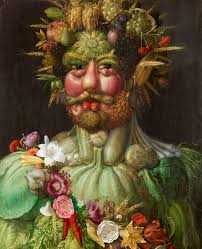HD TODAY e-NEWS: Insights from Human Development's Research & Outreach
HD TODAY e-NEWS is a quarterly digest of cutting-edge research from the Department of Human Development, College of Human Ecology, Cornell University. Explore the HD Today e-NEWS website at https://hdtoday.human.cornell.edu/ and discover a wide range of resources:
- Read and share our articles featuring research and outreach by HD faculty and students
- Watch videos on our YouTube Channel
- Listen to podcasts on our SoundCloud Channel
- Download reports and publications
- Learn with online continuing education
- Follow us on Twitter and Facebook
- Participate in a research study
- Subscribe to receive website and e-news updates
SPRING 2019 ISSUE
Stephen Ceci is elected to the American Academy of Arts and Sciences

Stephen Ceci, the Helen L. Carr Professor of Developmental Psychology in the College of Human Ecology is elected fellow of the American Academy of Arts and Sciences. Ceci’s research focuses on understanding real-world problems and settings. His work spans studies of intellectual development; children and the law; and women in science.
Imaging shows distinct pattern for tastes in the brain's taste center
Using functional magnetic resonance imaging (fMRI) and a new method of statistical analysis, Adam Anderson and colleagues have discovered that sweet, sour, salty, and bitter tastes are represented in distinct areas of the taste center in the human brain.
An interview with Valerie Reyna by CCE News

Dr. Valerie Reyna is Lois and Melvin Tukman Professor and has been Department Extension Leader for the Human Development department of the Cornell University College of Human Ecology since 2005. She also directs the Human Neuroscience Institute and co-directs the Center for Behavioral Economics and Decision Research.
The Integrative Neuroscience Salon - where science is a team sport

Dr. Marlen Gonzalez founded the Integrative Neuroscience Salon to create an inclusive community of "neuroscientifically curious" scientists from disparate disciplines, including human development, psychology, communications, engineering, neurobiology, computer science and law to meet and discuss neuroscience research through presentations and papers.
Anthony Burrow explains how 4-H can foster identity and purpose

Anthony Burrow, Professor in the Department of Human Development and co-director of the Bronfenbrenner Center for Translational Research’s Program for Research on Youth Development and Engagement (PRYDE), was interviewed for the podcast "Extension Out Loud." He discusses how exploring identity and sense of purpose helps young people get more out of programs such as 4-H.
Advancing science communication through Fuzzy-Trace Theory

Watch Valerie Reyna's talk at the National Academies of Sciences, Engineering, and Medicine's (NASEM) Colloquium on Advancing the Science and Practice of Science Communication: Misinformation About Science in the Public Sphere held in Irvine, CA on April 3-4, 2019 and co-sponsored by Rita Allen Foundation, Science Sandbox, Alfred P. Sloan Foundation and The KAVLI Foundation.



